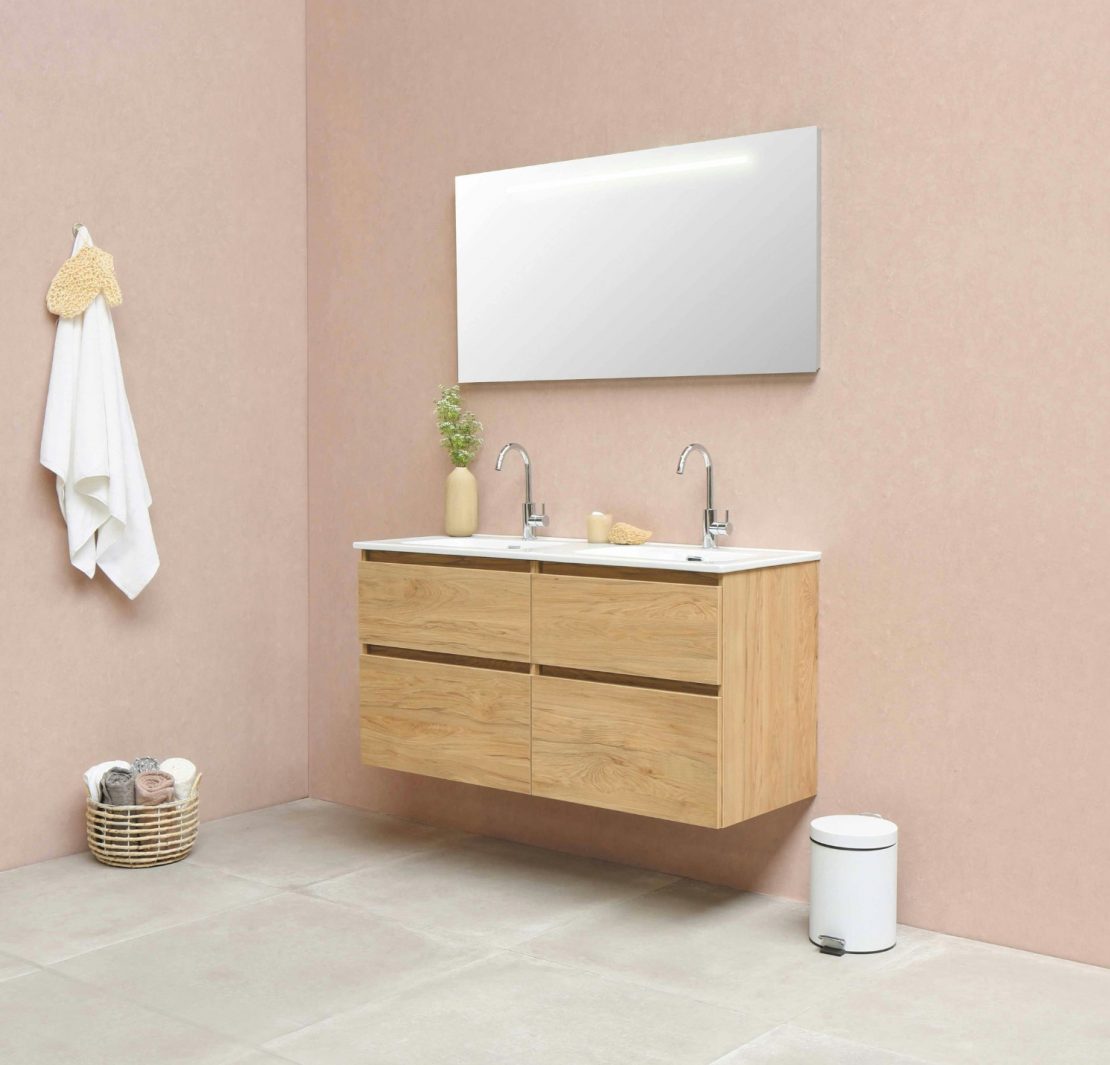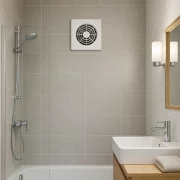Moisture resistance, hygiene, safety, aesthetics: choosing a bathroom floor involves many factors! Whether you’re building or renovating your home, you’re probably wondering which flooring options are best suited for this space. Here’s a look at the main alternatives, their advantages, and any potential drawbacks.
Tiles: porcelain stoneware or mosaic, an aesthetic and practical choice
Porcelain stoneware tiles are popular for their durability and easy maintenance, while mosaic tiles, which feature smaller individual tiles, offer similar benefits. The choice between these two largely comes down to aesthetic preference. However, keep in mind that mosaic tiles can be slightly harder to clean due to the increased number of grout lines. On the plus side, smaller tiles can reduce the risk of slipping. Whatever tile type you choose, pay attention to its resistance ratings: wear, indentation, water, chemical resistance, and above all, slip resistance.
Natural stone: a stylish choice
If you’re looking for a floor that adds character to your bathroom, natural stone may be the ideal choice. Whether it’s slate, granite, or marble, natural stone is durable and long-lasting. For added safety, you can opt for stones with non-slip properties, like granite. Of course, this option is more expensive than basic tiles, and installation costs are also higher due to the specialized skills required. Remember that stones used in bathrooms need to be treated with a waterproof sealant.
These stones, when used in the bathroom, must be protected with a waterproof treatment.”
PVC: practical and affordable
There are several non-slip PVC flooring options that are ideal for bathrooms (be cautious of vinyl that can be slippery). Affordable and available in a wide range of colors and styles, there’s something to suit everyone’s taste. Another perk: PVC floors are relatively easy to install and won’t break the bank. However, be sure to choose a durable PVC to avoid needing replacements too soon; otherwise, the investment won’t be as cost-effective.
Hardwood flooring: possible with precautions
Surprisingly, you can install hardwood flooring in a bathroom. Authentic and warm, it brings a unique charm to the space, much like natural stone… But be careful: not just any wood will do! Exotic woods generally provide good moisture resistance. This includes bamboo, teak, and mahogany. Beyond wood type, follow the recommended installation method closely to prevent water infiltration.
Exotic woods offer good resistance to moisture.”
Polished concrete: an increasingly popular choice
Ideal for quickly covering outdated tiles, polished concrete is valued for its durability. Offering a distinctive industrial look, it’s becoming more popular among homeowners for its style and longevity. Polished concrete is fairly easy to maintain, but it should be installed by a trained professional and treated appropriately.
Seagrass: for an eco-friendly bathroom floor
Completely natural, seagrass is made from a water plant that grows in estuaries and saltwater rivers. This eco-friendly option releases no volatile organic compounds (VOCs) into your indoor air. Affordable and durable, seagrass also provides good insulation and moisture resistance. Because seagrass thrives in humid environments naturally, it effectively absorbs moisture, helping to reduce humidity in the bathroom.
All these options are worth considering when enhancing your bathroom floor: choose based on your budget, constraints, and taste!

